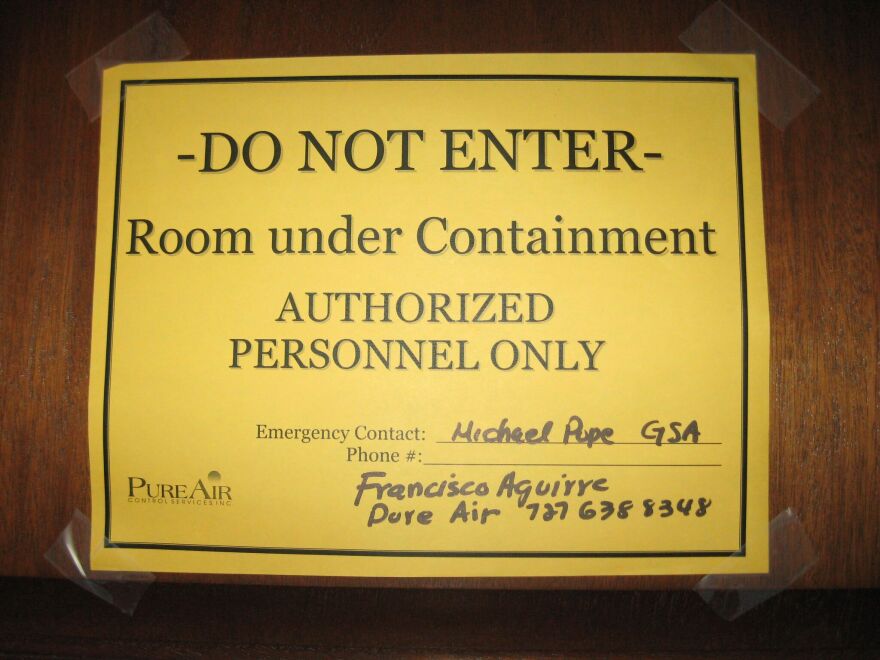U.S. Senator Marco Rubio Wednesday toured the U.S. District courthouse in downtown Pensacola, which remains closed because of mold and other health hazards.
Federal Judge Casey Rodgers took Rubio on a brief walk-through of the courthouse and afterward, said they’re moving toward what she hopes will be a resolution.
“This is not a partisan issue; access to justice and security for our judges and for our court personnel are a shared concern,” said Rodgers. “Senator Rubio has been very helpful in the past, Cong. [Jeff] Miller has been very helpful, Sen. [Bill] Nelson.”
In April, the House Transportation and Infrastructure Committee approved $30 million for repairs and upgrades to the 20-year-old facility. During a similar tour with Cong. Jeff Miller and two House colleagues in April of 2015, Rodgers pointed out mold and water damage, along with other threats to health and safety.
“This is not a simple solution, but it is a solution that deserves an immediate answer,” said Miller at that time. “Unfortunately there’s been a patchwork of solutions over time, and there is no way that a Band-Aid will fix the problem.”
The General Services Administration, the agency in charge of federal buildings, moved all personnel out of the courthouse, and into offices in and around the Winston Arnow Building. That included Sen. Rubio’s local staff.
“We began to interact with GSA, which was basically saying there wasn’t much of a problem here, that it was localized and isolated,” Rubio said. “Ultimately, we kept pressuring them along with Sen. Nelson, and at one point weren’t getting a lot of answers. But they began to become more responsive until there was an independent group to come in and acknowledge that in fact [the courthouse] was not a workable space.”

The scattering of the federal judiciary across downtown Pensacola and beyond, says Judge Rodgers, has changed their lives drastically. Where six judges shared five large, full-service courtrooms, they’re now crammed into one and a half with diminished usage.
“We’re no longer able to hold our naturalization ceremonies in the courthouse,” Rodgers said. “We no longer have a grand jury suite for the U.S. Attorney’s Office. We are making do the best that we can.”
What’s complicating the matter, says Sen. Marco Rubio, and possibly why funding for the renovation is stuck in congressional limbo, is the courthouse’s ownership. Philadelphia-based Keating Corporation still receives rent for the vacant building.
“The federal government doesn’t own this building,” said Rubio. “And I think one of the things that’s made [the GSA] reticent to come forward and invest the money to remediate it is it’s not their building. But at the end of this lease period, this building will fall into the hands of local government. Then it will be owned by the taxpayers.”
Rubio’s office was unable to provide the exact dollar figure for the rent.
The push now is for a $32 million project to make the building useable again. Rubio says that requires the signatures from the appropriate chairmen in both houses of Congress. The GSA plans to award the contract for the work in mid-September, with completion expected by late 2018.
Rubio says the mold and water damage at the Pensacola Federal Courthouse represent a unique problem. Usually, courthouses run out of space, or are hit by severe weather.
“In this case, the problem is from the inside out,” Rubio said.






